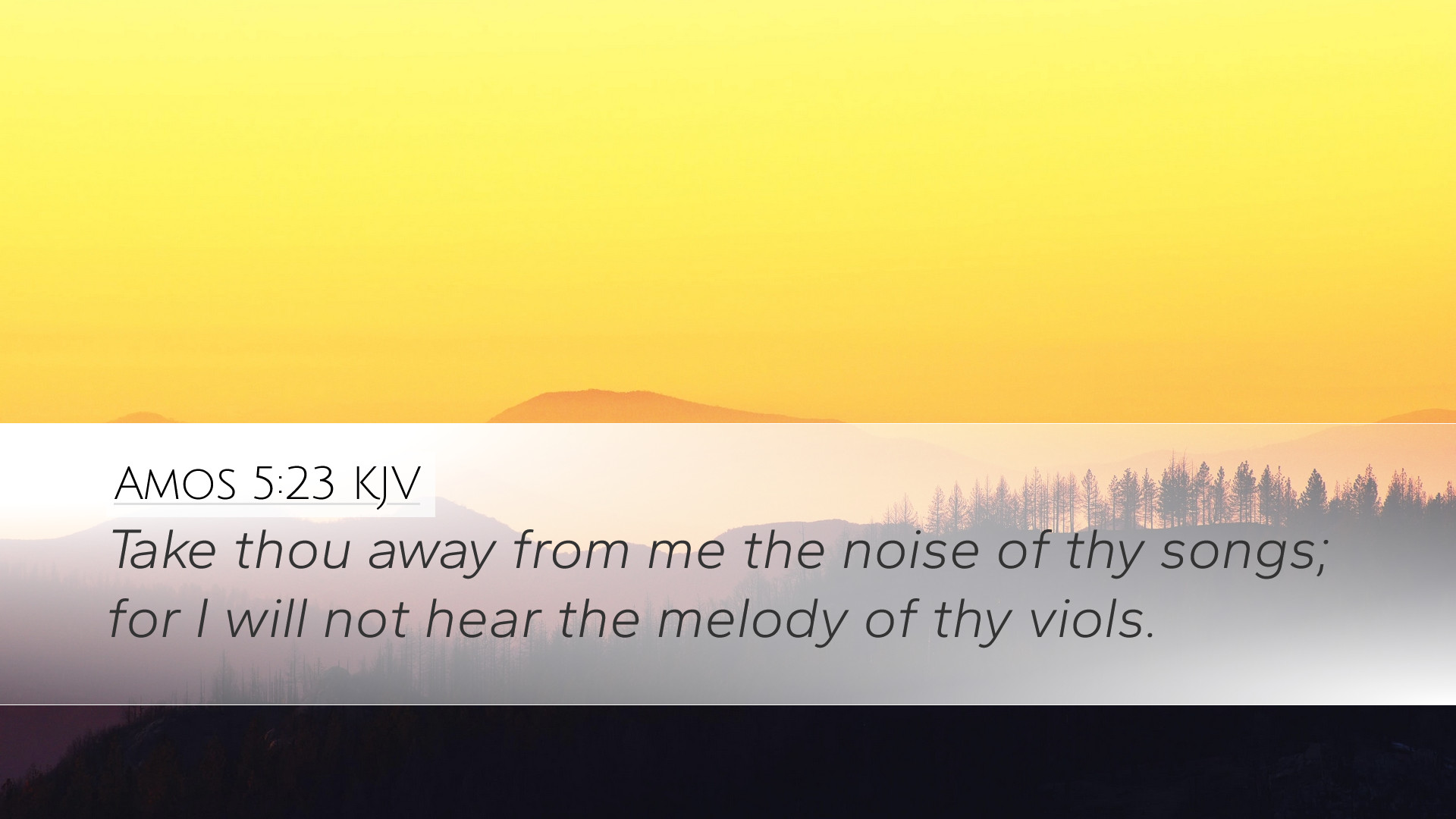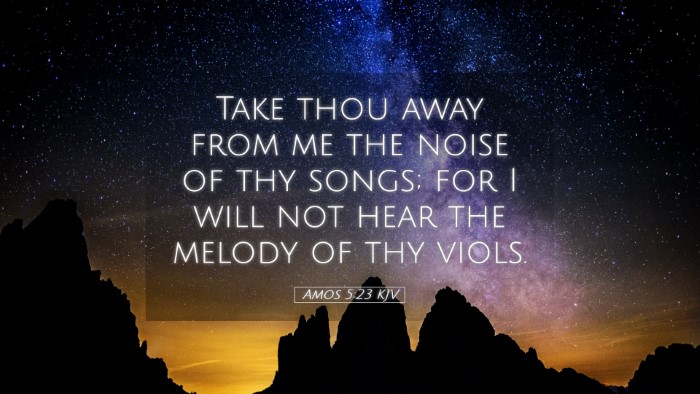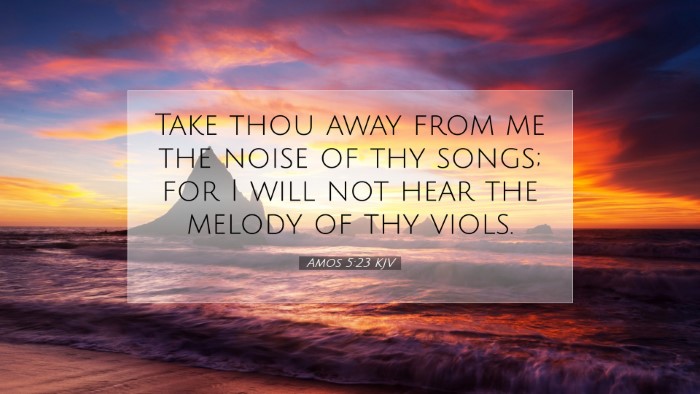Old Testament
Genesis Exodus Leviticus Numbers Deuteronomy Joshua Judges Ruth 1 Samuel 2 Samuel 1 Kings 2 Kings 1 Chronicles 2 Chronicles Ezra Nehemiah Esther Job Psalms Proverbs Ecclesiastes Song of Solomon Isaiah Jeremiah Lamentations Ezekiel Daniel Hosea Joel Amos Obadiah Jonah Micah Nahum Habakkuk Zephaniah Haggai Zechariah MalachiAmos 5:23
Amos 5:23 KJV
Take thou away from me the noise of thy songs; for I will not hear the melody of thy viols.
Amos 5:23 Bible Commentary
Commentary on Amos 5:23
Amos 5:23 states: "Take thou away from me the noise of thy songs; for I will not hear the melody of thy viols." This verse serves as a profound declaration regarding the nature of true worship and God’s response to insincere religious practices. It highlights the contrast between outward expressions of worship and the inner reality of one’s heart.
Contextual Background
The Book of Amos, written by the prophet Amos during the 8th century BCE, addresses the Northern Kingdom of Israel at a time of relative prosperity but moral decay. The people engaged in ritualistic worship yet neglected justice, righteousness, and the well-being of the marginalized.
Historical Setting
During Amos’ time, Israel was marked by economic affluence but also by spiritual apathy and social injustice. The people participated in festivals and offered sacrifices while simultaneously indulging in immoral practices (Amos 5:21-22).
Exegesis of Amos 5:23
This verse has significant implications regarding God’s view of worship and the essence of what it means to be His people.
Divine Displeasure with Ritualism
Noise of Songs: The "noise" indicated by Amos refers not just to the loudness of music, but the absence of sincerity in worship. Matthew Henry comments that while the songs may be pleasing to the ear, they are displeasing to God because they lack genuine devotion and reflect a hypocritical heart.
The Heart of Worship
In this passage, we see a divine rejection of religious activities that lack a moral foundation. Adams Clarke notes that God desires not mere ceremonial observance but a heart aligned with His will, filled with mercy and justice.
Implications for Worship
Albert Barnes emphasizes the inconsistency when worship is separated from ethical living. The people of Israel thought they could approach God through their rituals, but He requires a deeper connection rooted in justice and humility. This serves as a reminder for modern believers that worship without righteousness is unacceptable to God.
Theological Insights
Amos 5:23 challenges the understanding of what constitutes acceptable worship and how it relates to one's life and actions.
Worship and Social Justice
True worship, according to the prophet, cannot be disconnected from acts of justice. This notion is echoed throughout Scripture. The emotional and spiritual experience of worship is meant to be rooted in the living out of God’s commandments through justice, mercy, and love towards one another.
God’s Call for Authenticity
Henry expresses that God seeks authenticity in worship—where the heart is in harmony with the actions. This authenticity leads to a true relationship with God, contrasting starkly against mere ritualistic adherence.
Practical Applications
For pastors, theologians, and students of Scripture, Amos 5:23 provides several valuable insights:
- Examine Motives: Individuals must consistently evaluate their motives and the sincerity of their worship practices.
- Pursue Justice: Churches and congregants should be informed of and act upon social justice issues, understanding their responsibility in society.
- Teach Holistic Worship: It is essential to communicate that worship is not confined to songs and rituals but is also expressed through ethical living and community engagement.
- Encourage Personal Reflection: Regularly prompting congregants to consider how their lives reflect their worship can lead to spiritual growth.
Conclusion
Amos 5:23 remains a challenging scripture for contemporary believers, urging them to reconcile their worship with their lives. In a world rife with distractions, it serves as a timely reminder that God desires a heart that seeks to honor Him not merely through songs but through genuine acts of love and justice.


